Taekwang Jang
Snowball: A Scalable All-to-All Ising Machine with Dual-Mode Markov Chain Monte Carlo Spin Selection and Asynchronous Spin Updates for Fast Combinatorial Optimization
Jan 28, 2026Abstract:Ising machines have emerged as accelerators for combinatorial optimization. To enable practical deployment, this work aims to reduce time-to-solution by addressing three challenges: (1) hardware topology, (2) spin selection and update algorithms, and (3) scalable coupling-coefficient precision. Restricted topologies require minor embedding; naive parallel updates can oscillate or stall; and limited precision can preclude feasible mappings or degrade solution quality. This work presents Snowball, a digital, scalable, all-to-all coupled Ising machine that integrates dual-mode Markov chain Monte Carlo spin selection with asynchronous spin updates to promote convergence and reduce time-to-solution. The digital architecture supports wide, configurable coupling precision, unlike many analog realizations at high bit widths. A prototype on an AMD Alveo U250 accelerator card achieves an 8$\times$ reduction in time-to-solution relative to a state-of-the-art Ising machine on the same benchmark instance.
A 65nm 36nJ/Decision Bio-inspired Temporal-Sparsity-Aware Digital Keyword Spotting IC with 0.6V Near-Threshold SRAM
May 06, 2024Abstract:This paper introduces, to the best of the authors' knowledge, the first fine-grained temporal sparsity-aware keyword spotting (KWS) IC leveraging temporal similarities between neighboring feature vectors extracted from input frames and network hidden states, eliminating unnecessary operations and memory accesses. This KWS IC, featuring a bio-inspired delta-gated recurrent neural network ({\Delta}RNN) classifier, achieves an 11-class Google Speech Command Dataset (GSCD) KWS accuracy of 90.5% and energy consumption of 36nJ/decision. At 87% temporal sparsity, computing latency and energy per inference are reduced by 2.4$\times$/3.4$\times$, respectively. The 65nm design occupies 0.78mm$^2$ and features two additional blocks, a compact 0.084mm$^2$ digital infinite-impulse-response (IIR)-based band-pass filter (BPF) audio feature extractor (FEx) and a 24kB 0.6V near-Vth weight SRAM with 6.6$\times$ lower read power compared to the standard SRAM.
A Spiking Neural Network Decoder for Implantable Brain Machine Interfaces and its Sparsity-aware Deployment on RISC-V Microcontrollers
May 03, 2024

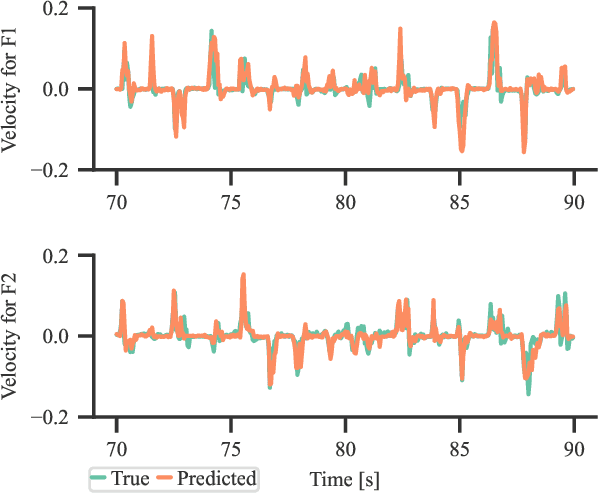
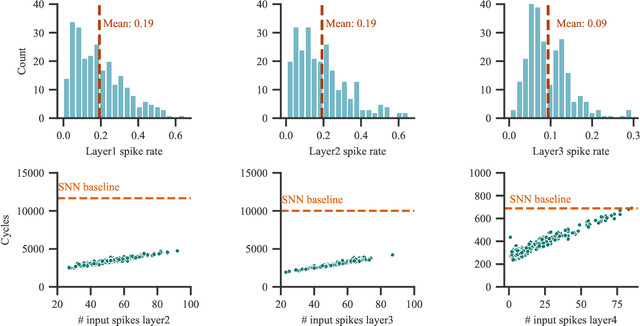
Abstract:Implantable Brain-machine interfaces (BMIs) are promising for motor rehabilitation and mobility augmentation, and they demand accurate and energy-efficient algorithms. In this paper, we propose a novel spiking neural network (SNN) decoder for regression tasks for implantable BMIs. The SNN is trained with enhanced spatio-temporal backpropagation to fully leverage its capability to handle temporal problems. The proposed SNN decoder outperforms the state-of-the-art Kalman filter and artificial neural network (ANN) decoders in offline finger velocity decoding tasks. The decoder is deployed on a RISC-V-based hardware platform and optimized to exploit sparsity. The proposed implementation has an average power consumption of 0.50 mW in a duty-cycled mode. When conducting continuous inference without duty-cycling, it achieves an energy efficiency of 1.88 uJ per inference, which is 5.5X less than the baseline ANN. Additionally, the average decoding latency is 0.12 ms for each inference, which is 5.7X faster than the ANN implementation.
An Energy-Efficient Spiking Neural Network for Finger Velocity Decoding for Implantable Brain-Machine Interface
Oct 07, 2022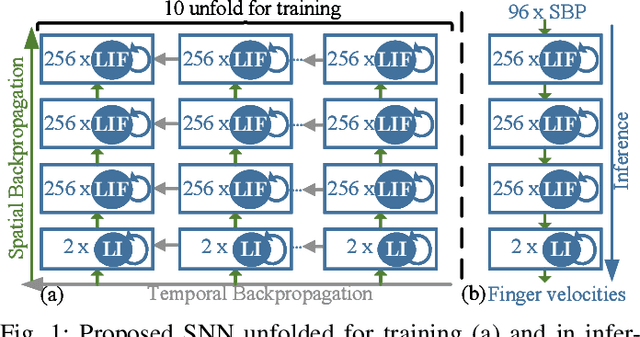
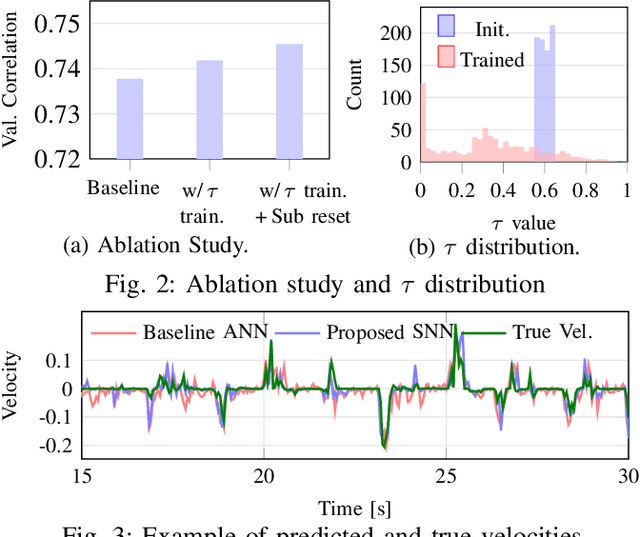
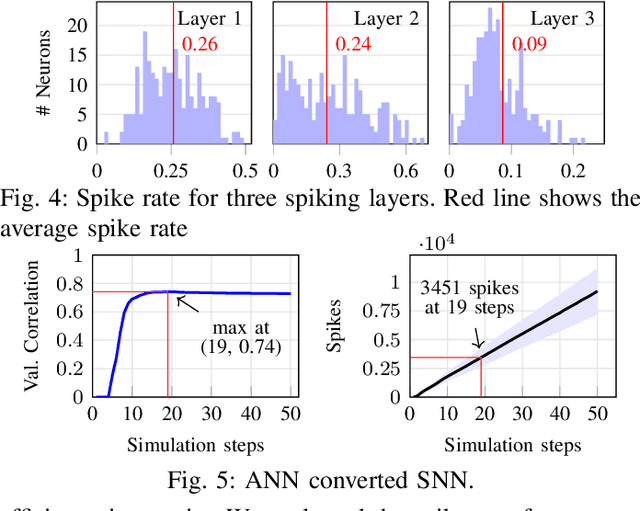
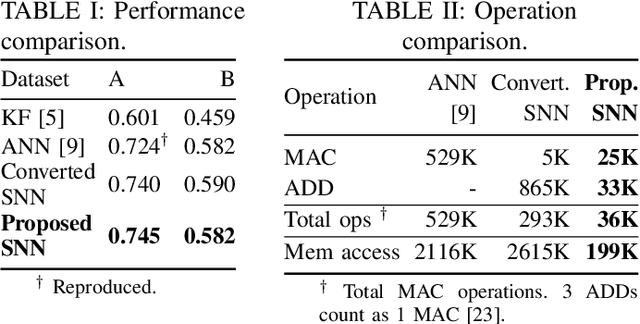
Abstract:Brain-machine interfaces (BMIs) are promising for motor rehabilitation and mobility augmentation. High-accuracy and low-power algorithms are required to achieve implantable BMI systems. In this paper, we propose a novel spiking neural network (SNN) decoder for implantable BMI regression tasks. The SNN is trained with enhanced spatio-temporal backpropagation to fully leverage its ability in handling temporal problems. The proposed SNN decoder achieves the same level of correlation coefficient as the state-of-the-art ANN decoder in offline finger velocity decoding tasks, while it requires only 6.8% of the computation operations and 9.4% of the memory access.
 Add to Chrome
Add to Chrome Add to Firefox
Add to Firefox Add to Edge
Add to Edge